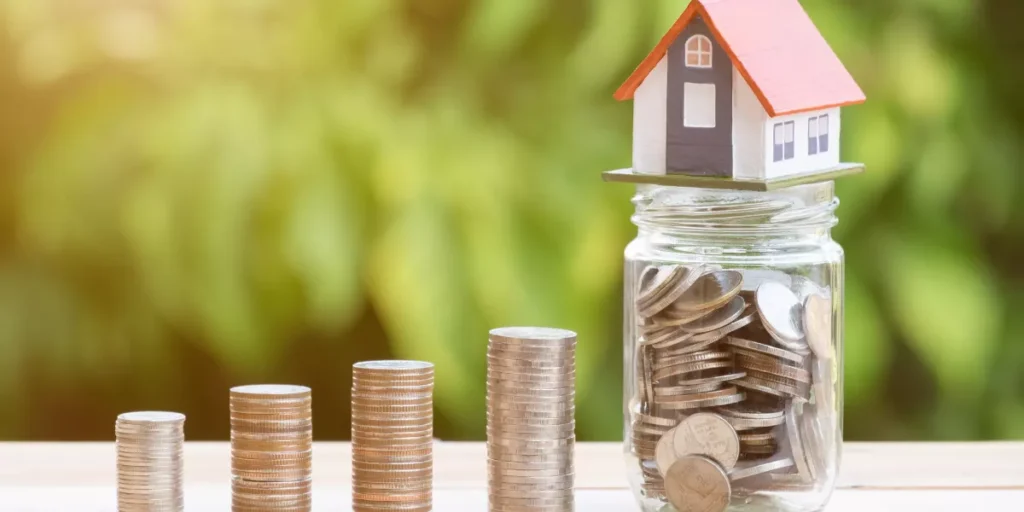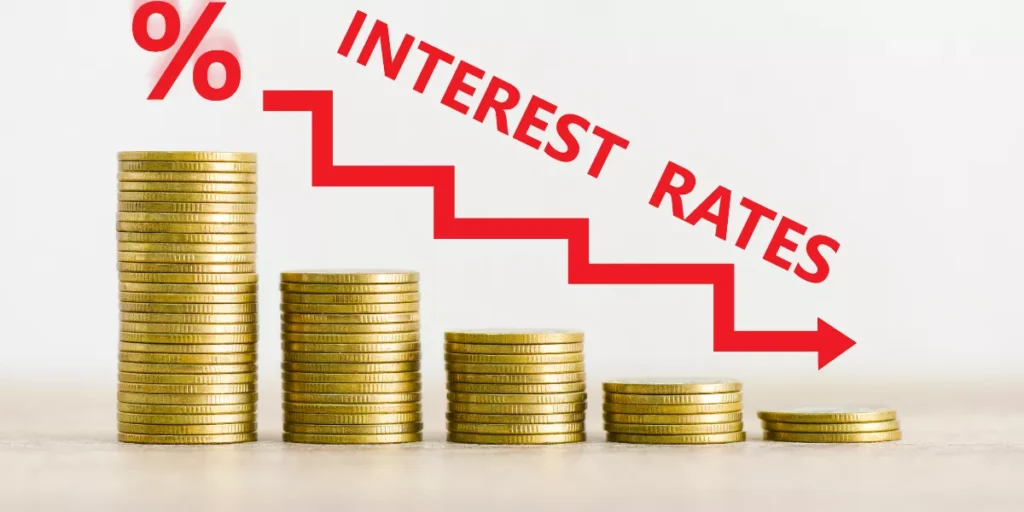One of the key concerns you’ll have when buying or selling a house is determining how much it’s really worth. There is no straightforward answer to that reasonable question. Making informed decisions requires knowing what determines the value of a house, whether you’re an investor, a first-time buyer, or simply interested in your own property.
Let’s get into the specifics of appraised value of your home. We’ll examine significant market factors that affects property value, some of which are within your control and some of which are not. You will, however, have a far better understanding of what determines a home’s value by the end.
Factors That Determine A Home’s Fair Market Value

Many factors can influence the fair market value of a home. There is a careful balancing act between economics, perception, and data; it is not just about what the buyer can afford or what the seller wants. Let’s dissect the different factors. that affect how much your property is worth.
Neighborhood Comps
“Comparable sales,” or “comps,” are among the first things that any professional appraiser, realtor, or astute buyer considers in your home’s current value. These are recently sold homes in the area that are comparable in size, style, age, and features.
Why do comps matter? Because they give you an idea of what local buyers are truly willing to pay. Unless your home has some unique features, it is unlikely to sell for $600,000 if three comparable homes in your neighborhood sold for about $500,000.
The catch is that even minor variations in layout, upgrades, or condition are factors that affect sales price differences. Comps give the starting point, but they don’t tell the whole story.
Location
No factor affects home valuation more reliably than location, as any real estate agent or seasoned realtor will tell you. We’re talking about particular neighborhoods, school districts, and even the side of the street a house is on, not just the city or zip code.
Homes that come with features such as a peaceful greenbelt or sit close to excellent schools usually fetch a higher value compared to homes with similar characteristics in the surrounding neighborhood. Houses in the more exclusive parts of Westlake Hills, Mueller, and Tarrytown are generally worth more than those being built in areas that are still in progress.
Location is important for lifestyle, convenience, and future prospects in addition to prestige if you want to sell your home. When people ask what determines the value of a house, the answer almost always begins with location.
Home Size And Usable Space
As everyone knows, larger homes are typically more expensive. However, there is a crucial distinction: usable and functional space is more important than total square footage.
Property size that boast 2,400 square feet, three number of bedrooms, and modern open floor plans tend to fetch higher price tags than similar homes that feature various inconvenient, smaller spaces. That said, useful space isn’t restricted to include only the interior of the house. These areas of a home can all increase its perceived worth.
For space they can truly live in and enjoy, buyers are willing to pay a premium. Therefore, usable square footage is frequently more significant when determining your current home value than simply size on paper.
Age And Condition
Age of the home is much more than a simple figure in a list price.
Older homes typically showcase characteristics that result from their heritage and distinctive style. At the same time, aging homes are likely to have hidden cost to replace or repair for old parts or systems. However, these issues can still depreciate the value of a promising home.
A house that has undergone recent renovations may attract the highest home prices, thanks to its increased energy efficiency and the fact that it requires little effort to live in. Well-maintained homes with new and energy-efficient upgrades usually sell for more than those needing major repairs.
A buyer’s confidence and perceived value both increase when purchasing a home with better conditions.
Upgrades And Updates
Are you interested in increasing the assessed value of your property? Ideally, renovating your bathroom or kitchen is the best home improvement project to kickstart.
Updated finishes such as luxury vinyl plank flooring, quartz countertops, walk-in showers, and stainless steel appliances add value to a property. However, not every upgrade is made equally. Energy-efficient windows, small kitchen renovations, curb appeal improvements, and modern bathrooms are typically examples of high ROI (return on investment) projects.
Selecting upgrades that suit the tastes of the present buyer is crucial to increase the market value of your home. Excessive personalization could reduce the appeal of your space. Keep in mind that buyers do not want to feel as though they are inheriting someone else’s taste; they want to envision themselves living in the house.
The Local Market
You can’t understand what impacts a home sale without first considering the state of the real estate market. The real estate market is influenced in the same way by supply and demand as almost all other commodities are.
When the demand for homes exceeds the supply, it’s a seller’s market. Homes’ value tends to skyrocket and sell unusually quickly when the market favors sellers. On the other hand, in a buyer’s market, the seller may need to adjust expectations due to the high supply and slow demand.
Many aspects, including shifts in employment, population growth, and the development of new homes, can affect the local real estate market. Monitoring the real estate market in your city is essential when planning to purchase or sell a house.
Economic Indicators
Going a little further, home values are also influenced by the state of the overall economy.
People feel more at ease purchasing homes when unemployment is low, wages are increasing, and consumer confidence is high. This increases demand and raises prices. Prices may soften and demand may decline during uncertain or downturning economic times.
Over time, federal housing policies, GDP growth, and inflation can all have an effect on market conditions and in turn, housing prices. A robust housing market is typically supported by a robust economy, and vice versa.
Interest Rates

Despite being invisible, interest rates have a significant impact on home values.
Lower interest rates allow buyers to purchase more expensive homes. For instance, buyers would have room in their budget for a $500,000 house when purchasing at a 4% rate, yet only a $450,000 house at a higher 6% rate. Access to financing directly influences the level of demand and the prices of homes.
Higher mortgage rates from a lender often cause homes in a market to become more expensive, whereas lower rates typically result in homes becoming more affordable. Paying attention to mortgage rates and property tax is crucial if you want to know how various aspects influence a home’s worth.
Conclusion
So, what determines the value of a house? They clearly show it’s much more than merely their surroundings that affect a home’s value. You must consider that value include factors like the area, region, upgrades, and the health of the economy.
Home value is a mix of financial analysis, trends, and emotional connection reflected in the various houses in the surrounding area. Learning about these factors can give you better insights regardless of whether you need to purchase your first home, put looking to sell, or evaluate a property’s value.
If you’re in the Austin area and looking for clarity, insight, and expert guidance, talk to us, your trusted Austin realtor. Reach out to us today and take the guesswork out of real estate.
FAQs
Q. Does Home Staging Actually Affect The Price At Which My House Sells?
A: Of course. As well as showing off the home’s details, staging helps buyers see how they could use the different spaces as you sell a home. A home that is well-staged usually sells more quickly and makes a bigger profit than a cluttered or unorganized home.
Q. How Frequently Should I Look Up The Value Of My House?
A: One time every year, or each time there are serious changes in the local market. It’s wise to calculate the comparative market analysis of your house after all the major improvements to determine whether it was worth what you spent or you can use an online home value estimator tool.
Q. Do Features Of Smart Homes Raise The Value Of Real Estate?
A: Yes, smart home features raise the value of your house, especially if they share the same, easy-to-use software. These days, people like to see energy-saving technology and security cameras when they consider homes.
Q. What Happens If My House Isn’t Valued At The Asking Price?
A: Your client may not be able to secure the desired homeowners insurance if their property doesn’t receive a full home appraisal estimate. As a result, the buyer may be asked to pay more cash, or the property’s price may decrease before being sold recently.







